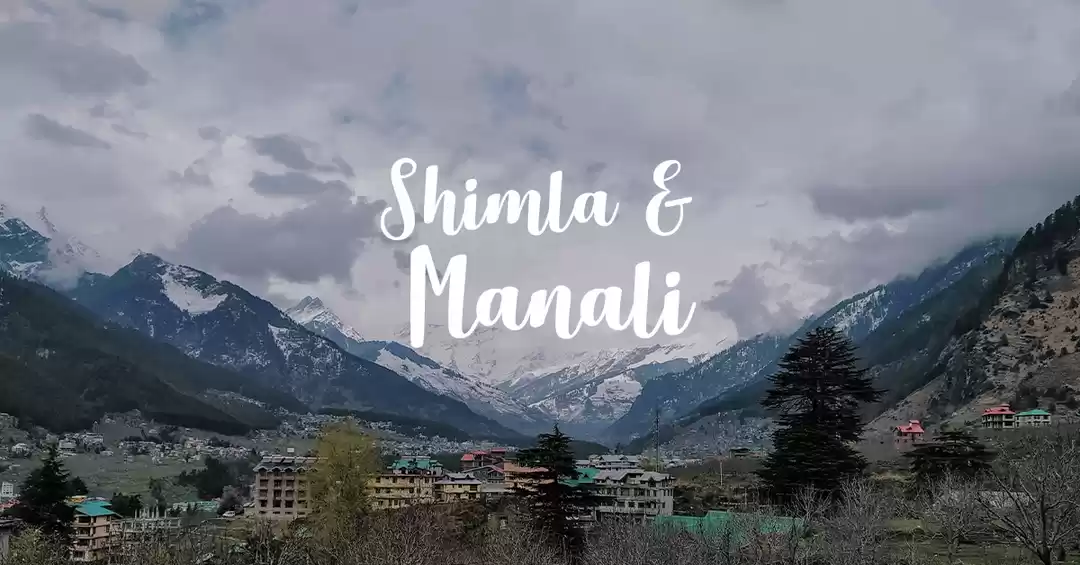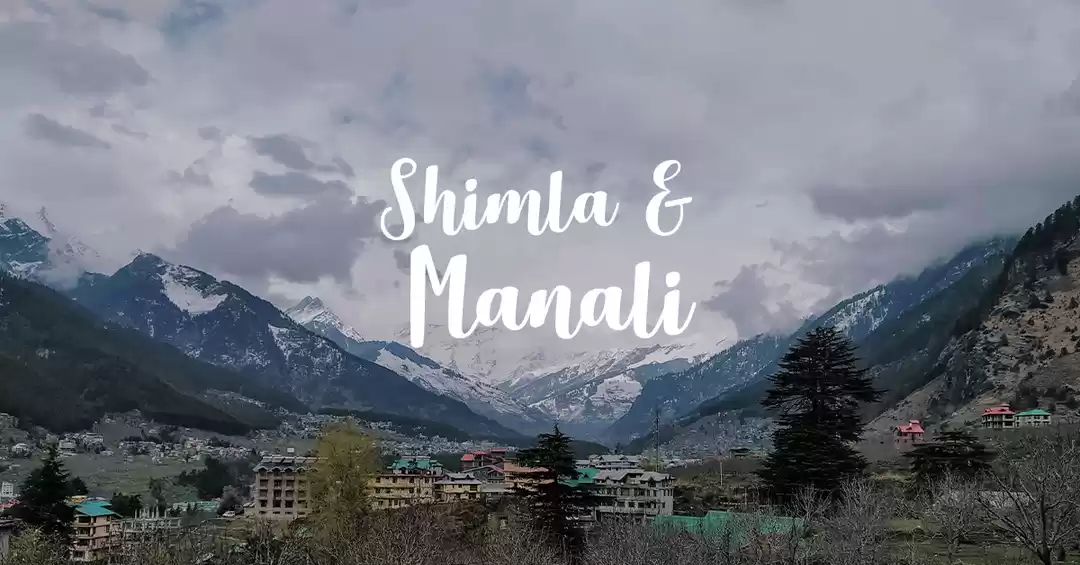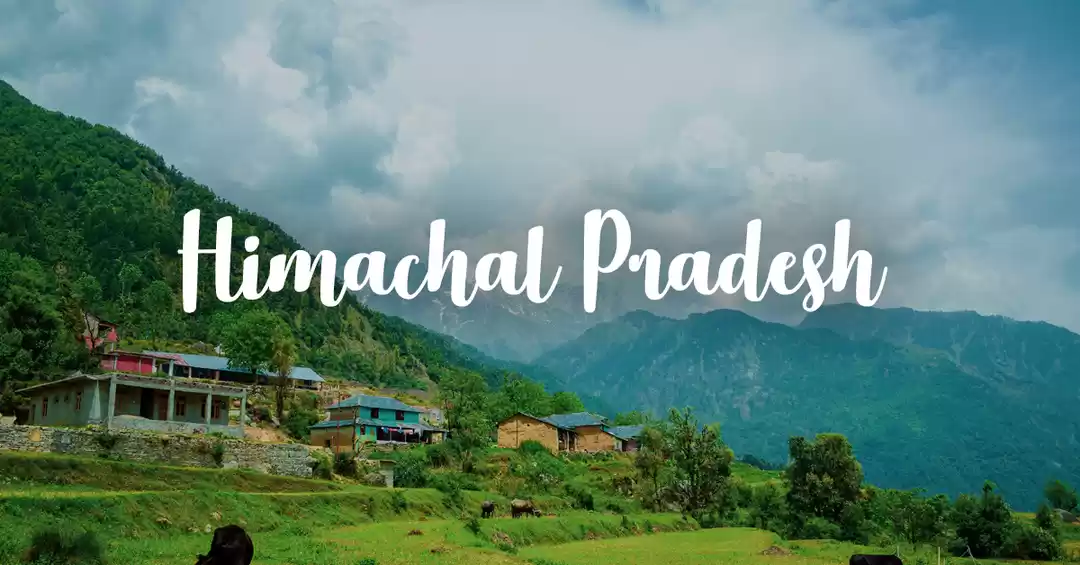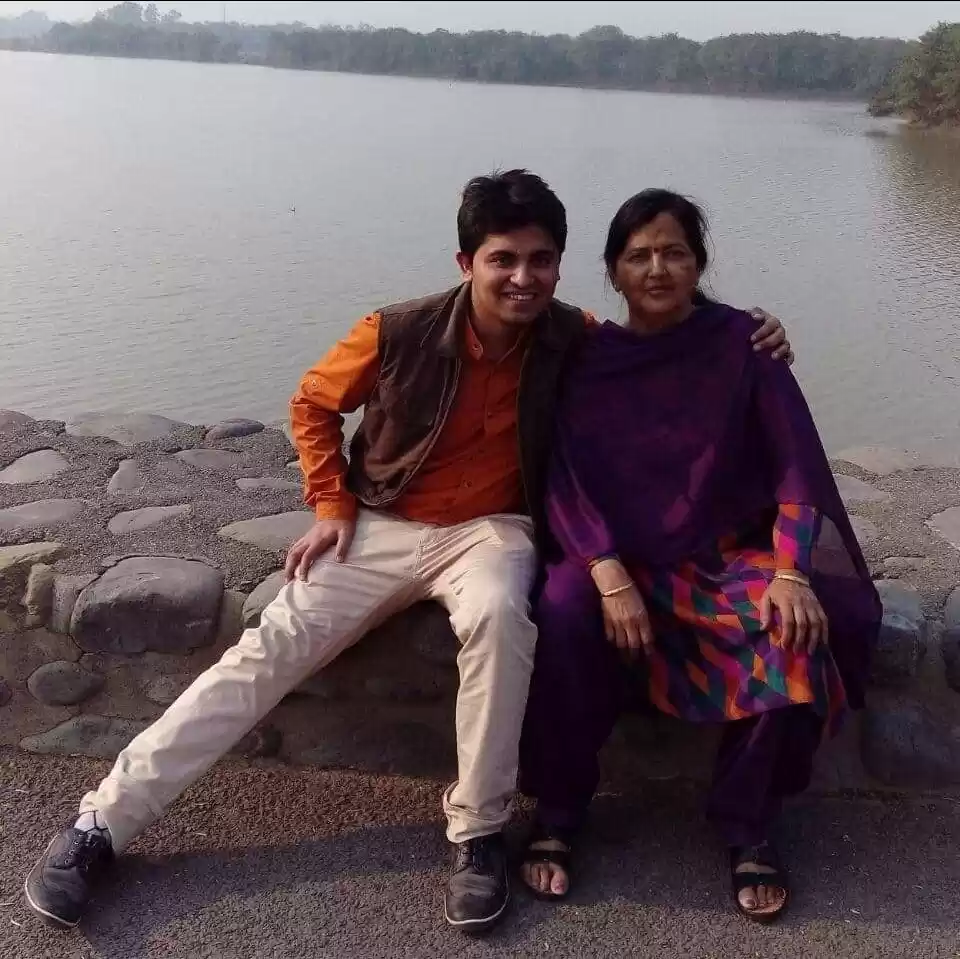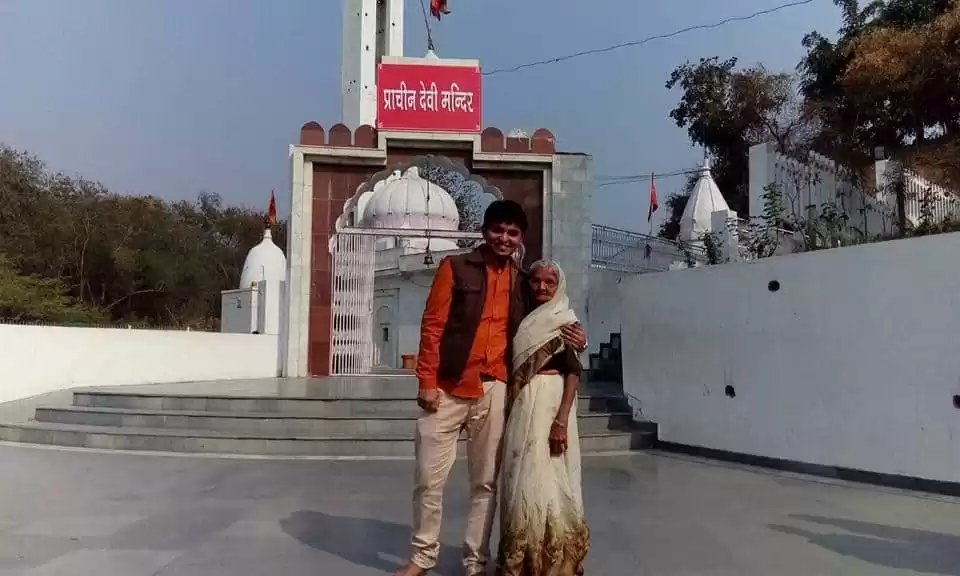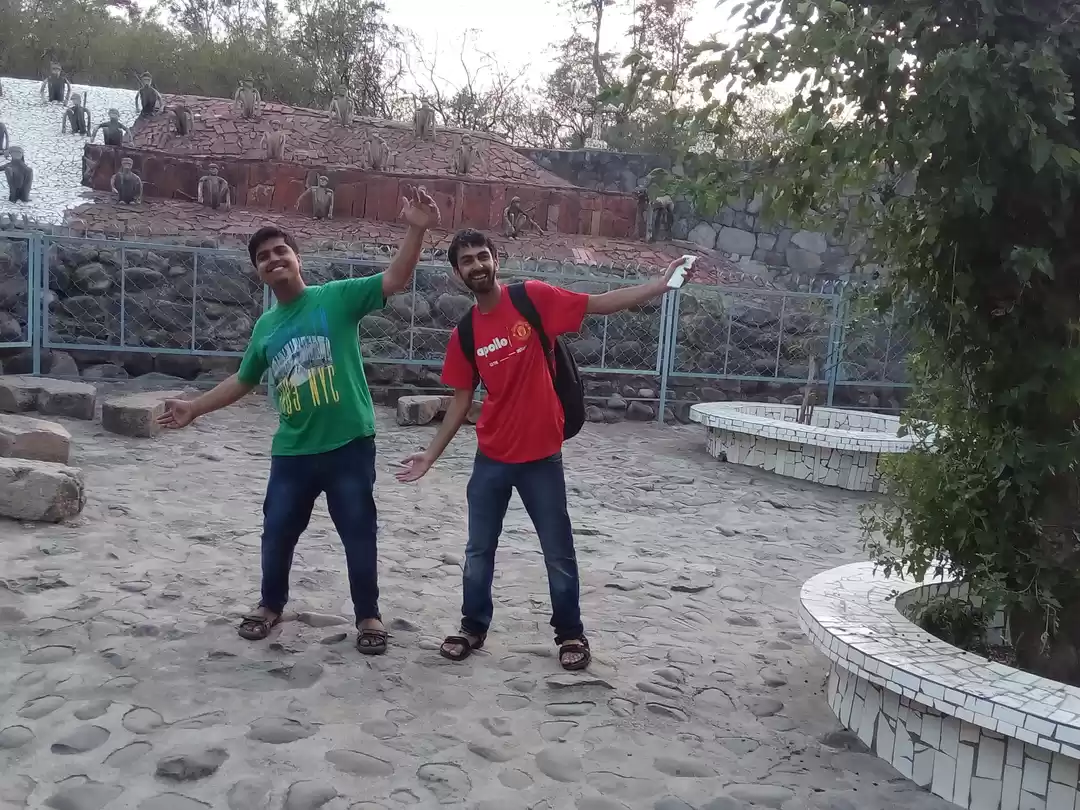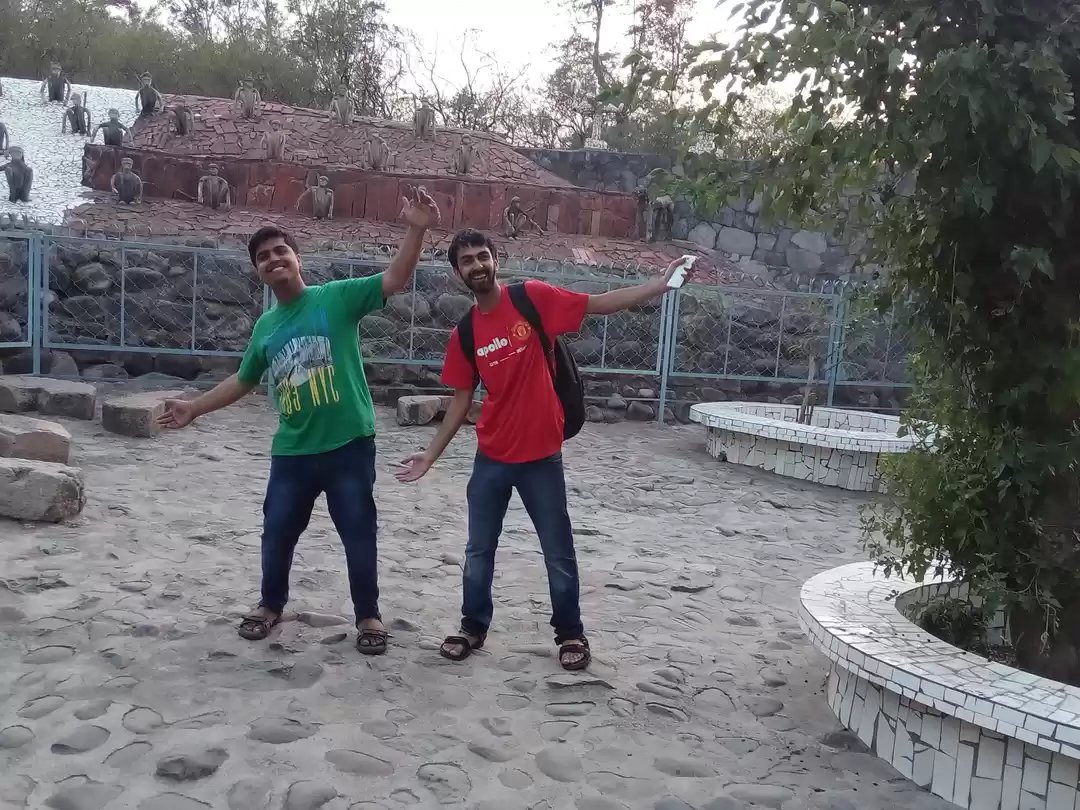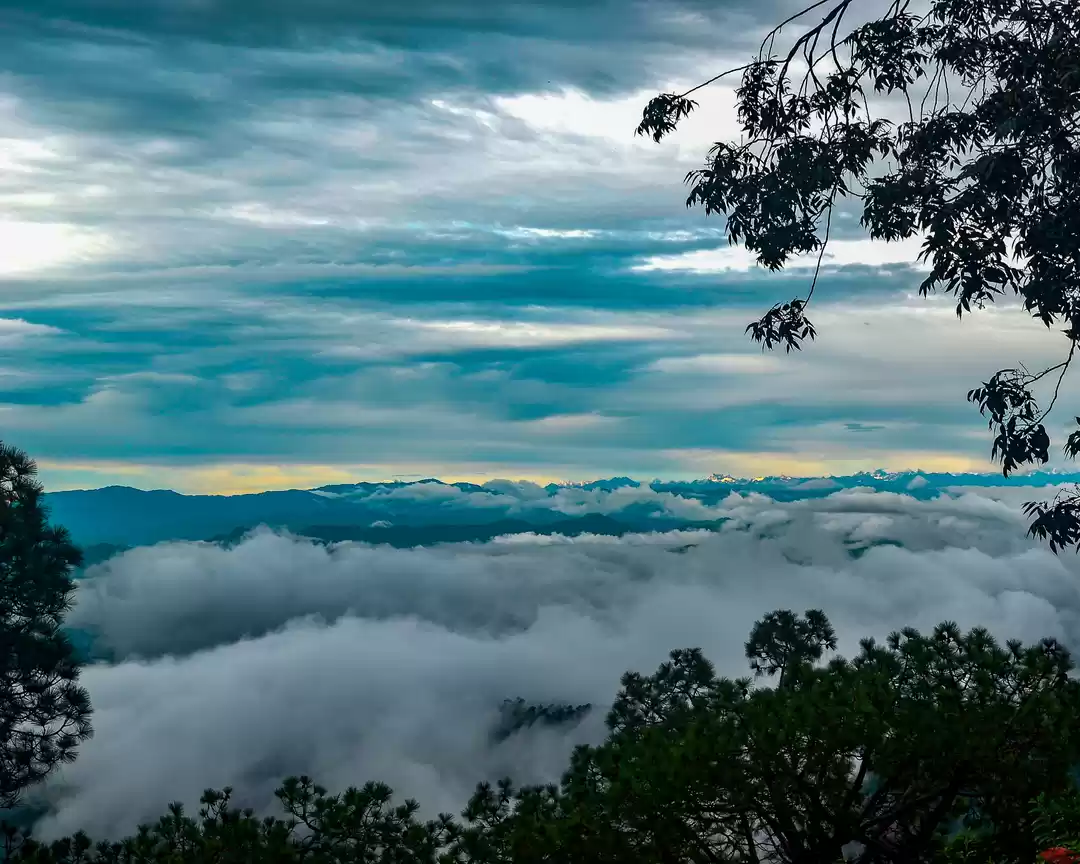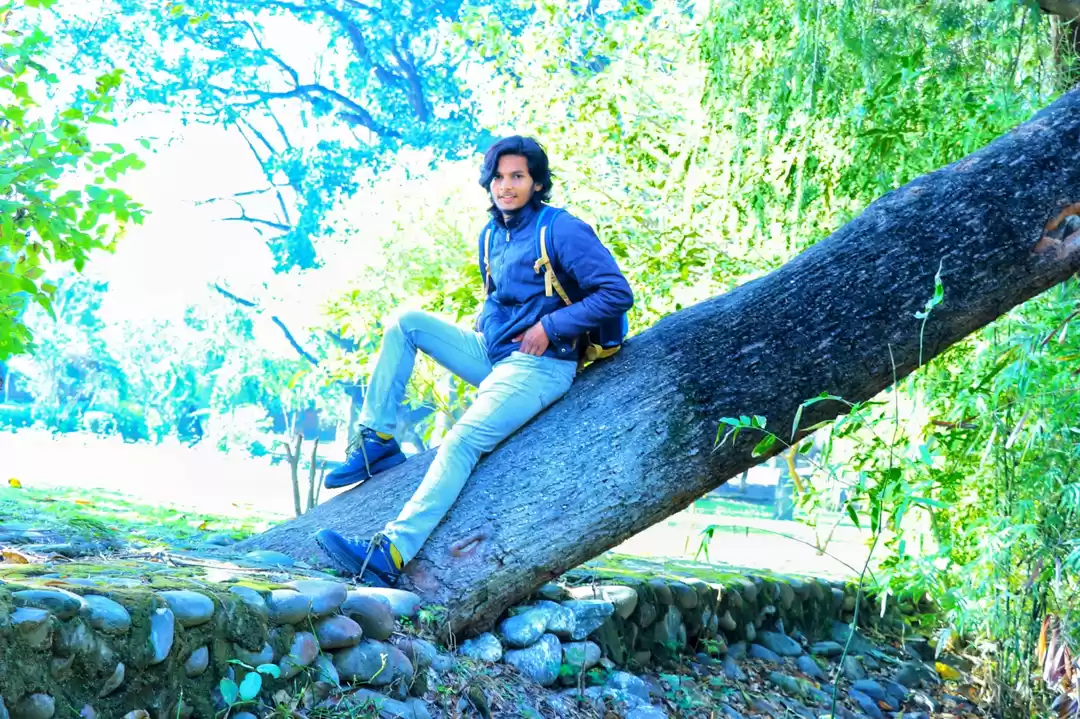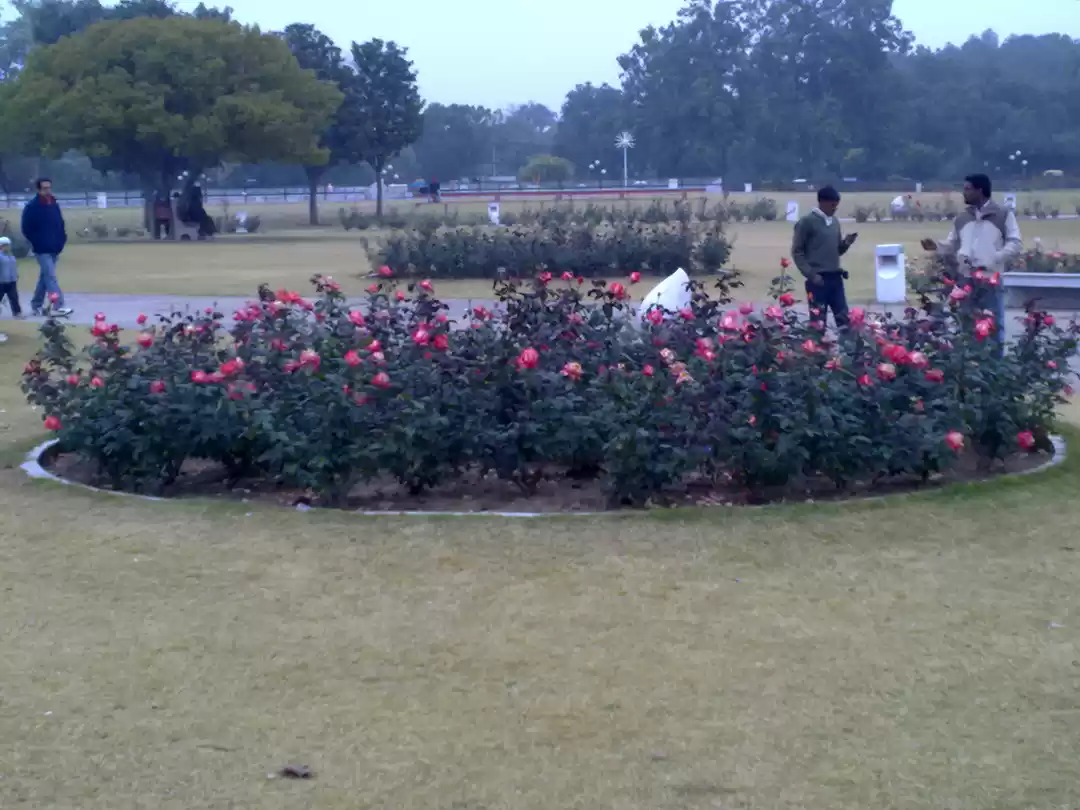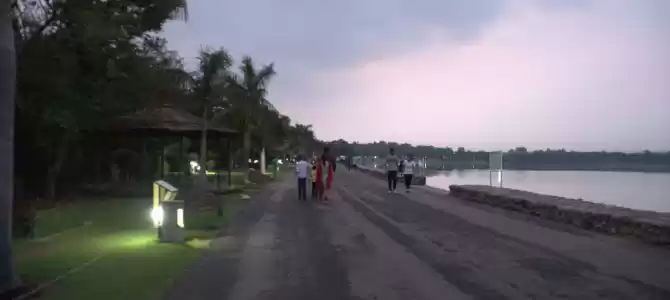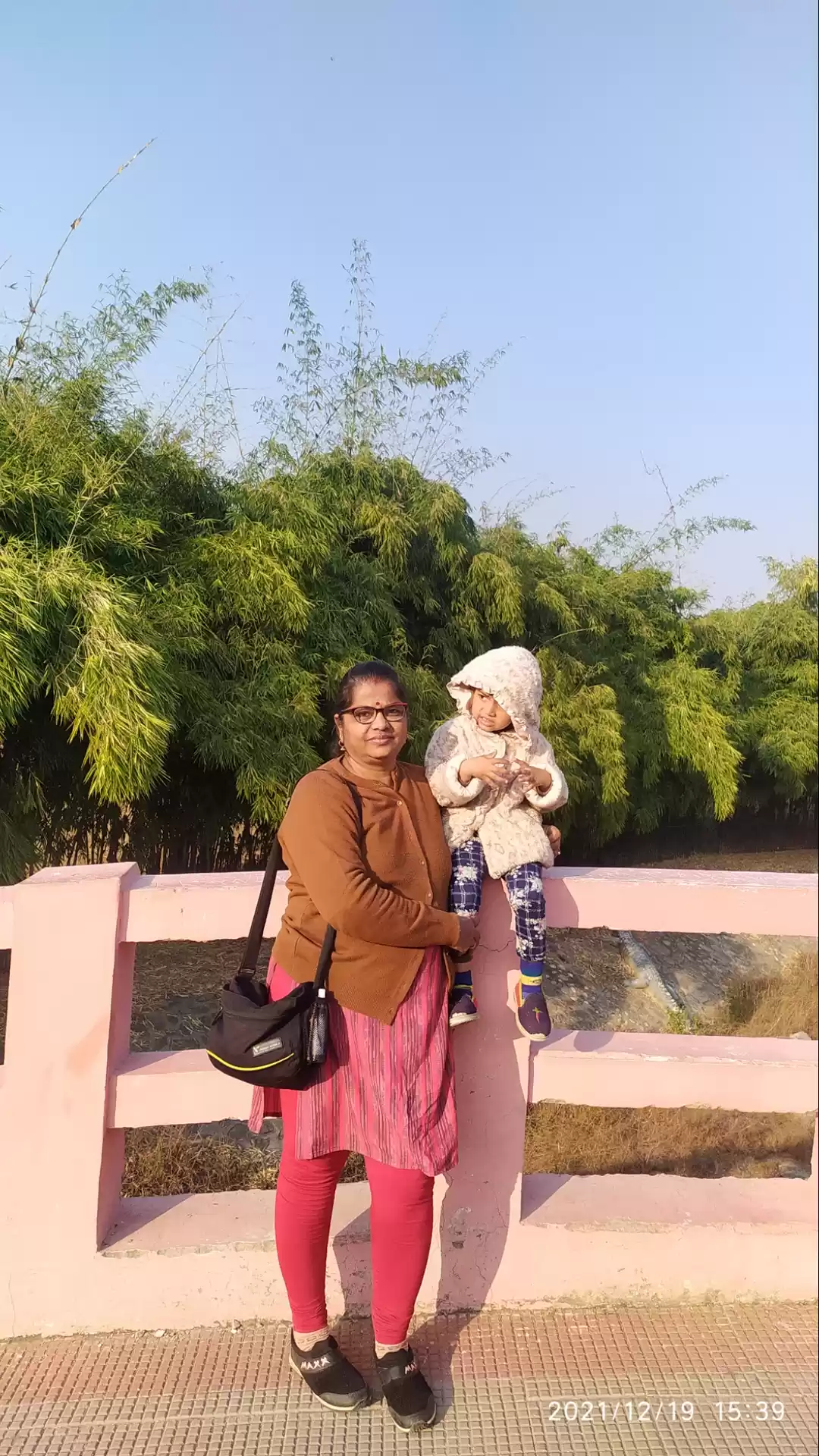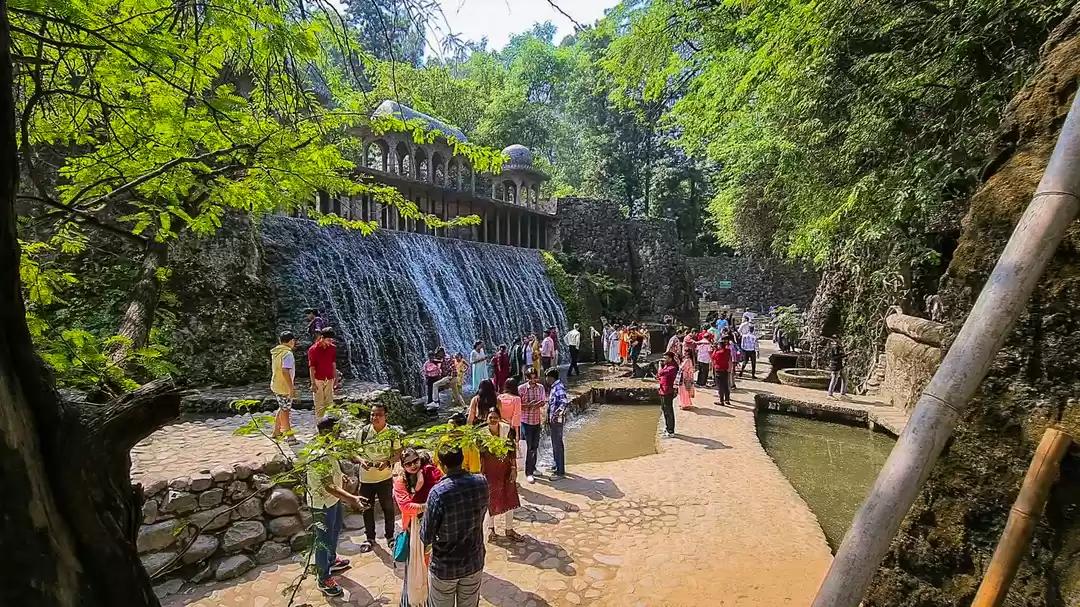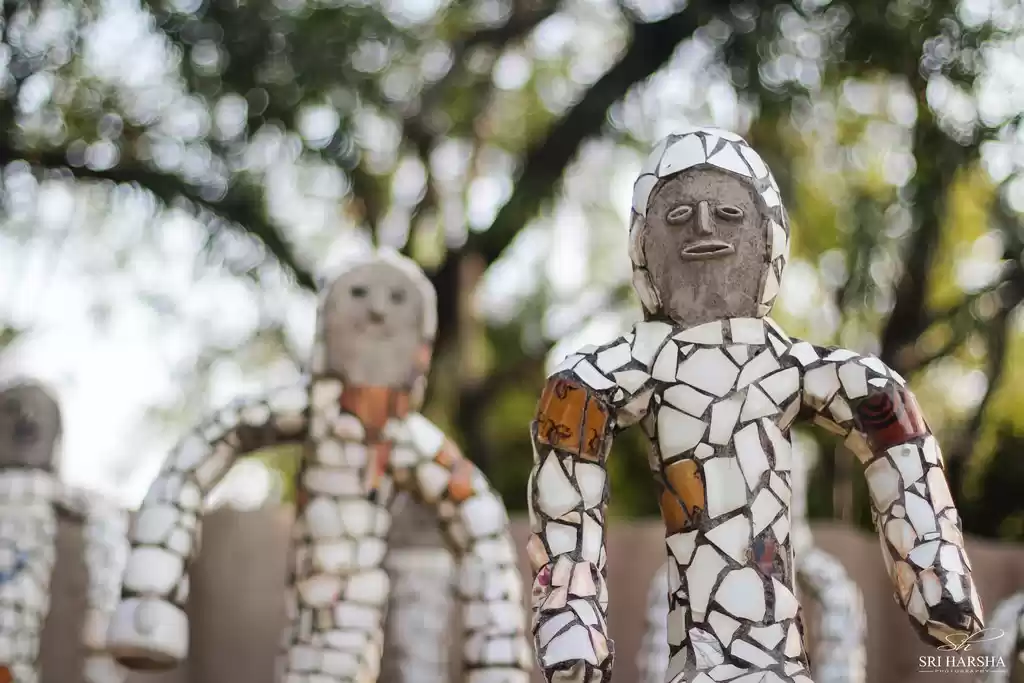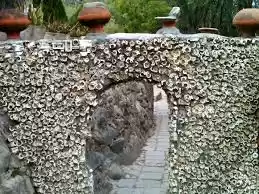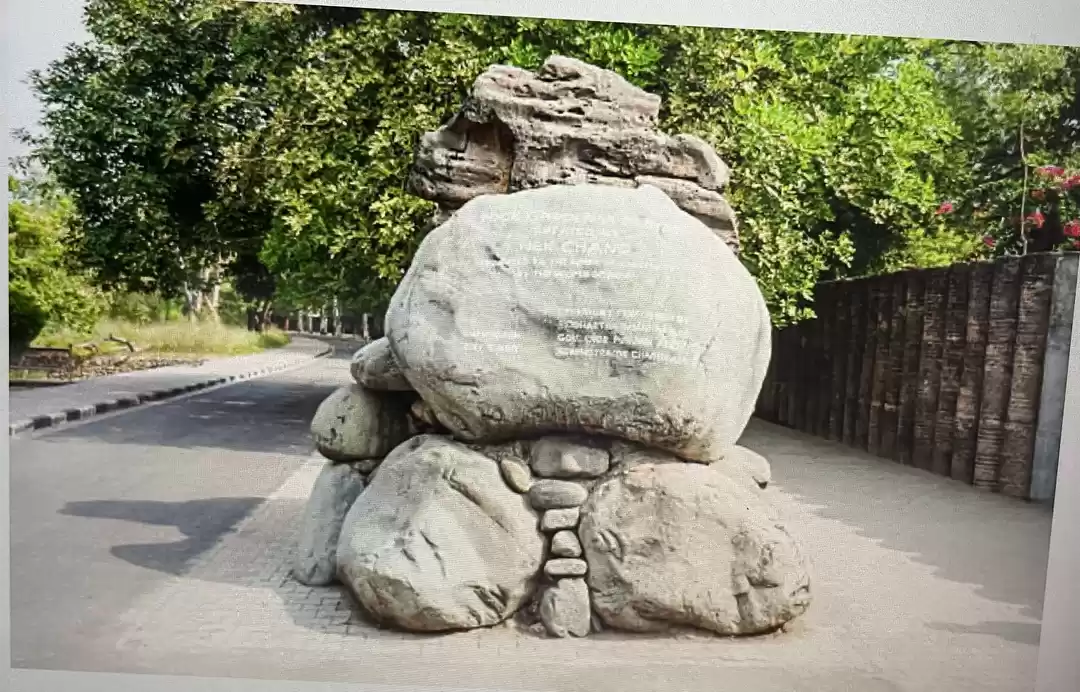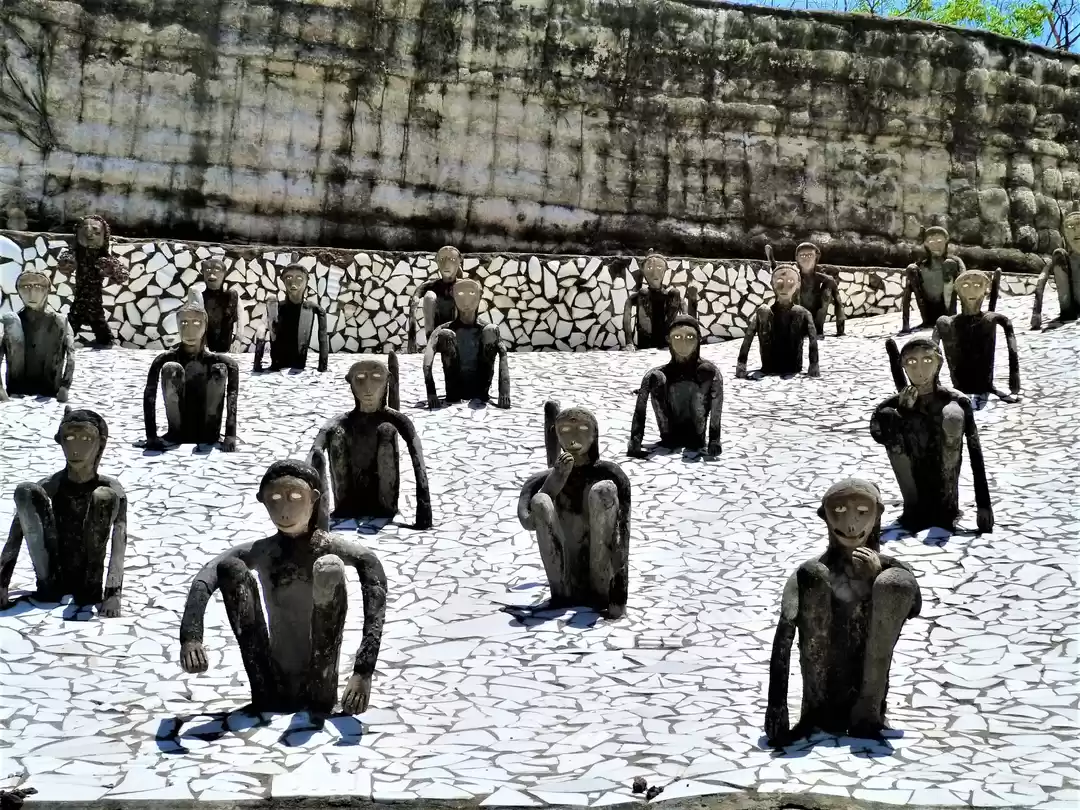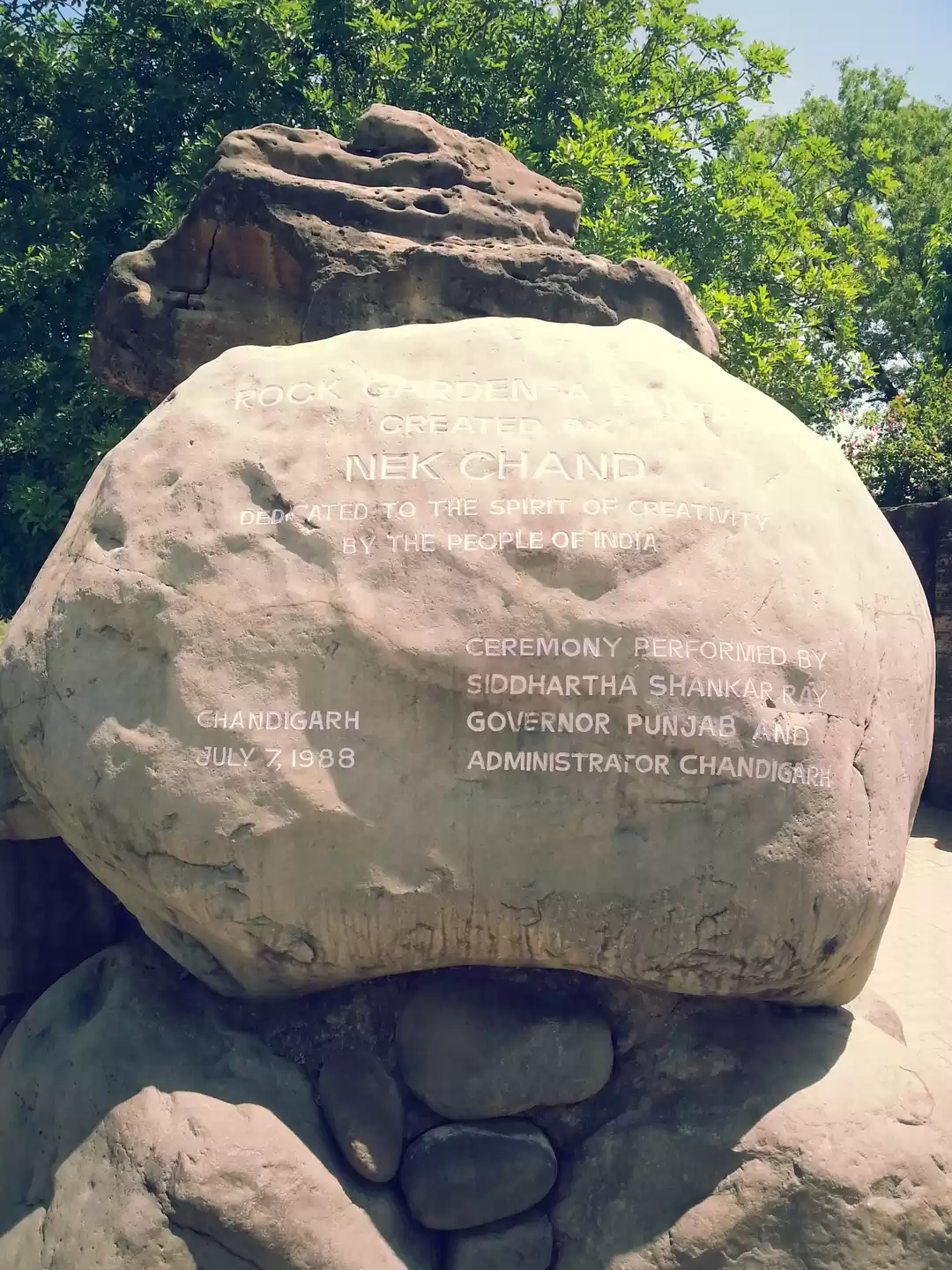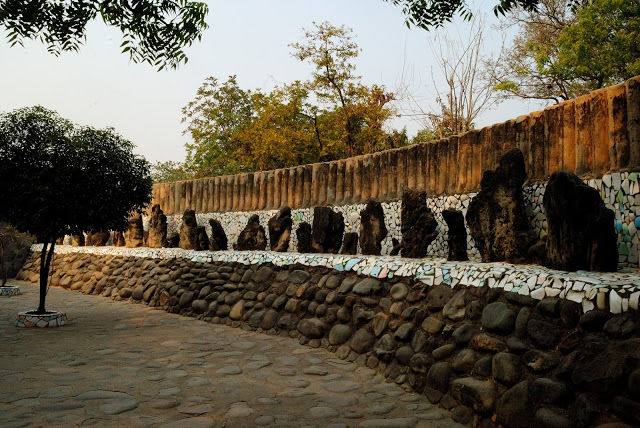
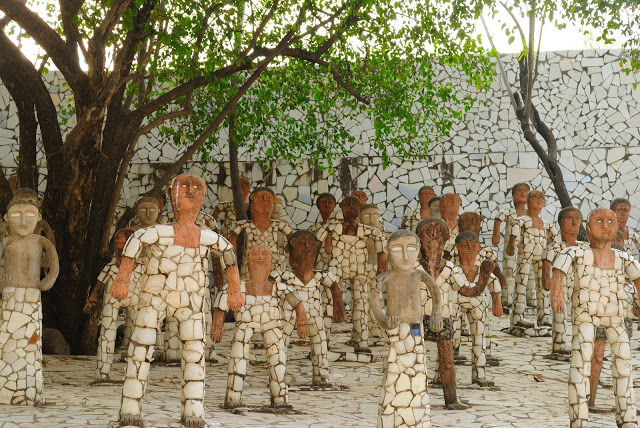
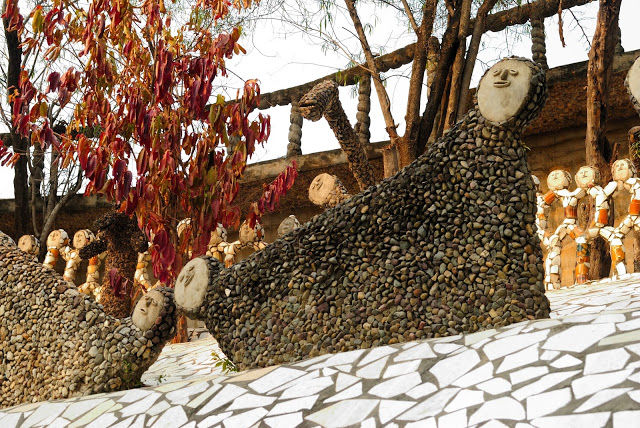
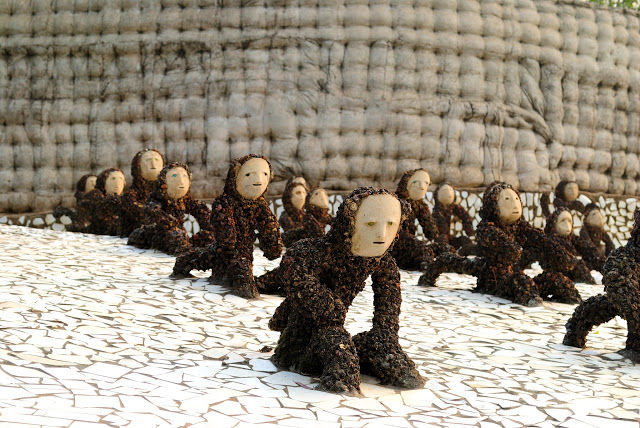
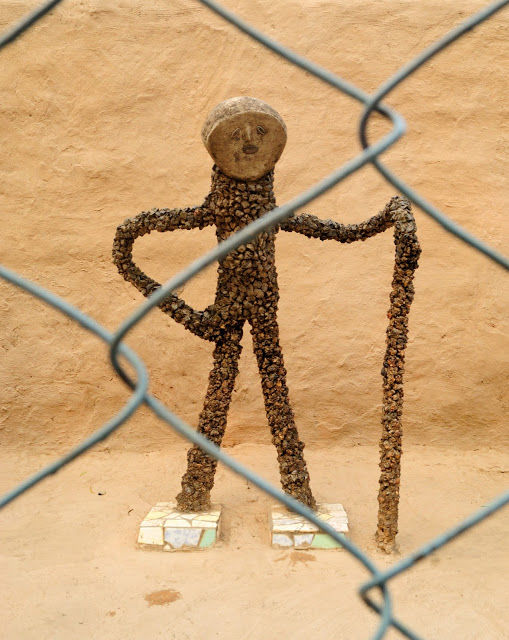
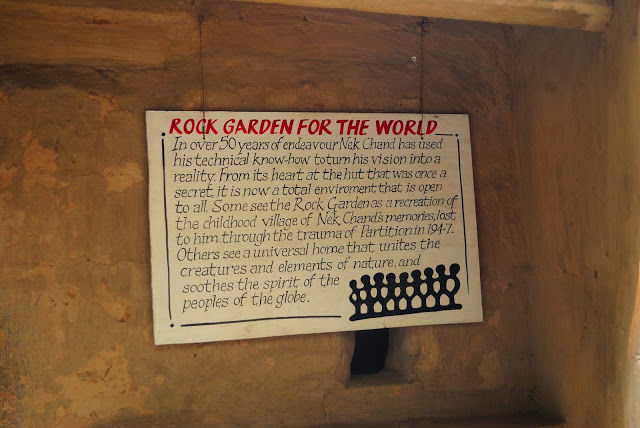
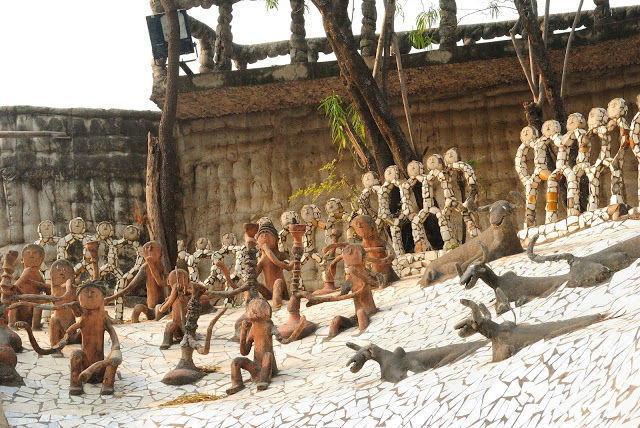
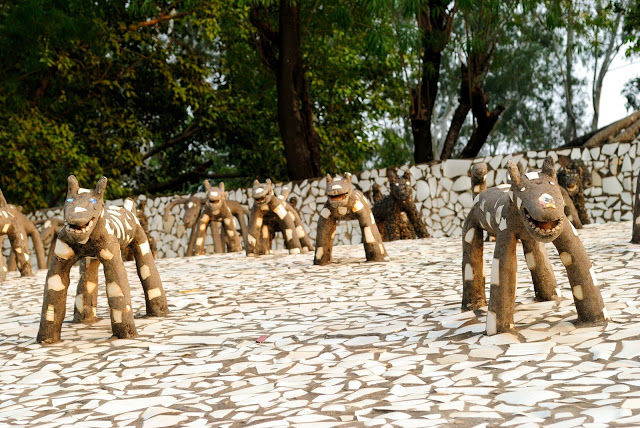
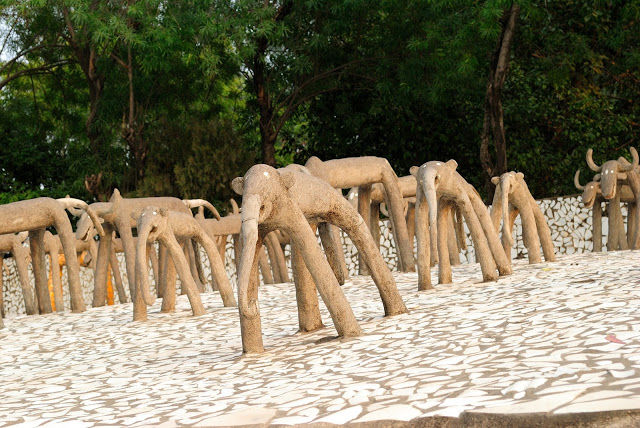
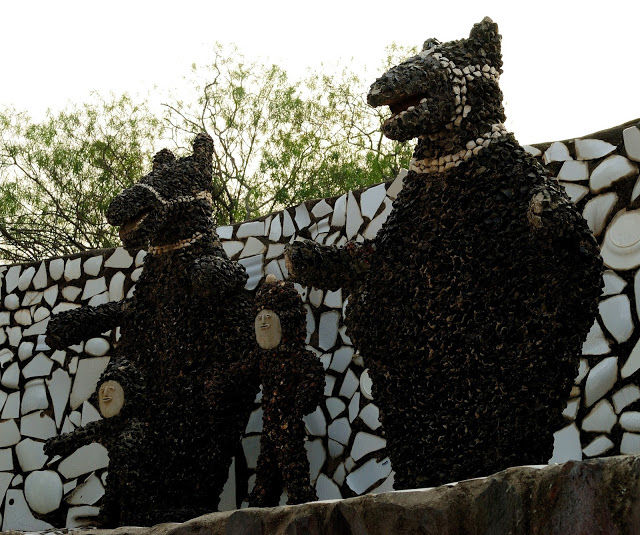
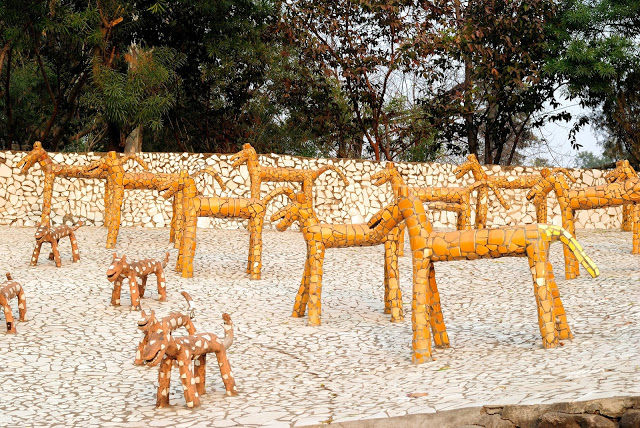
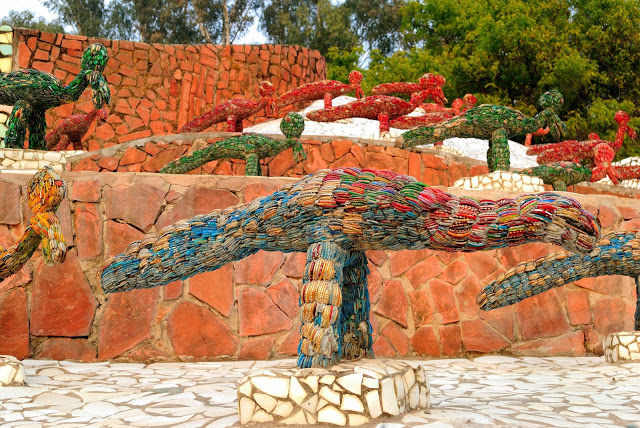
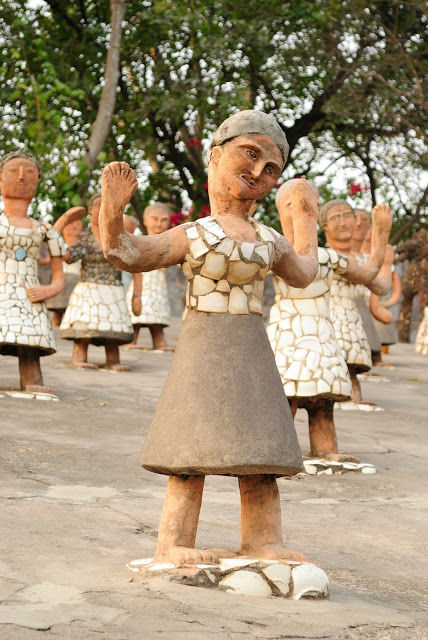
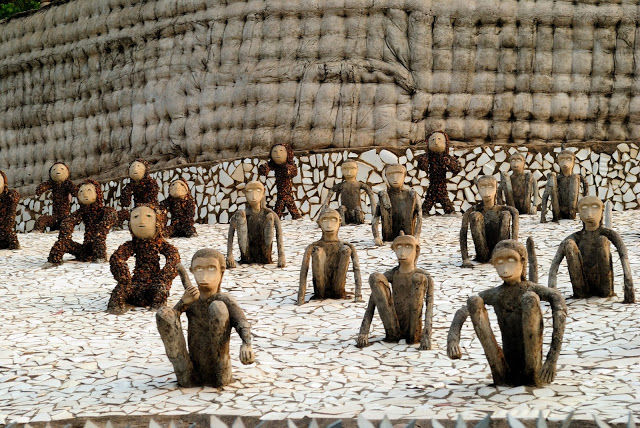
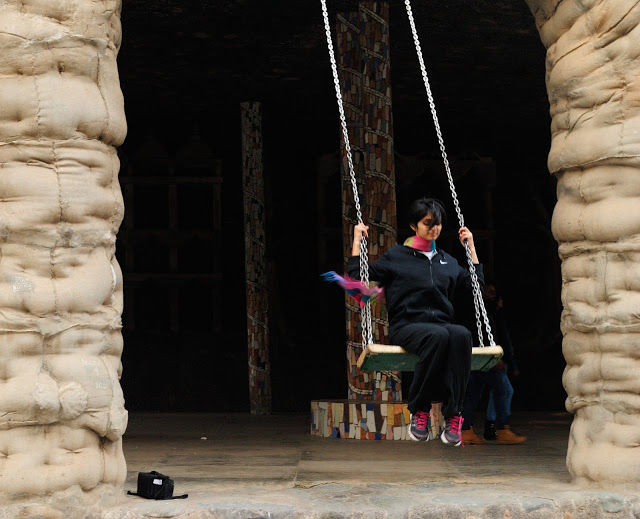
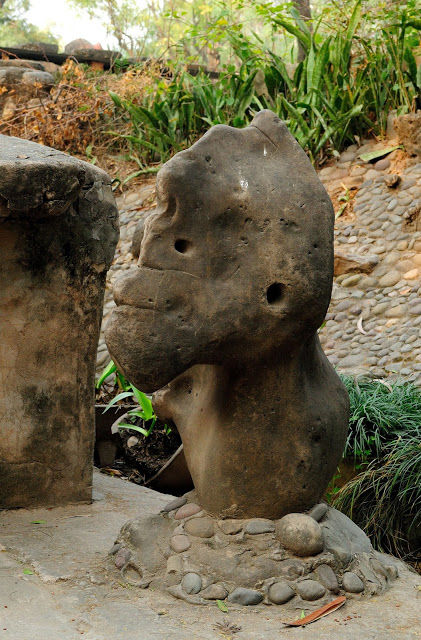
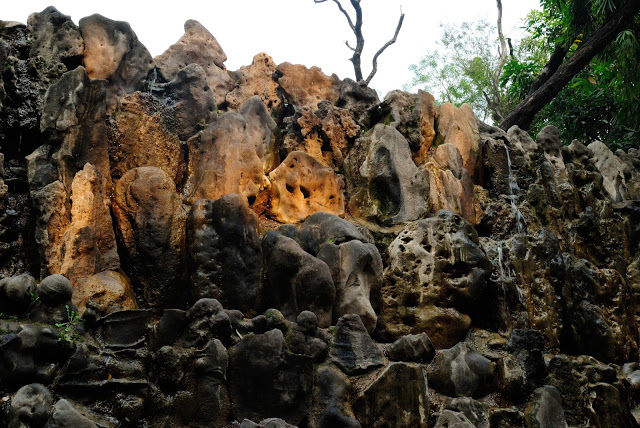
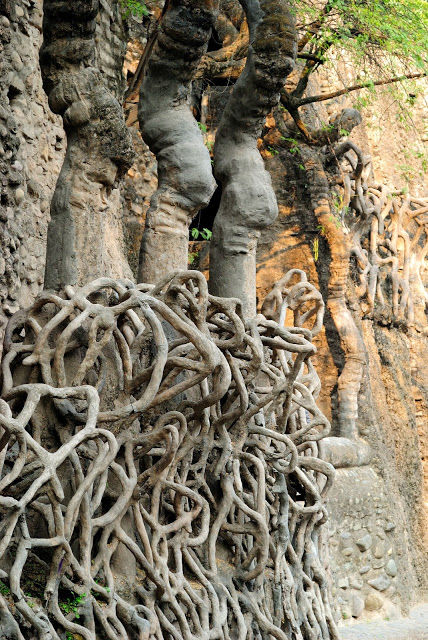
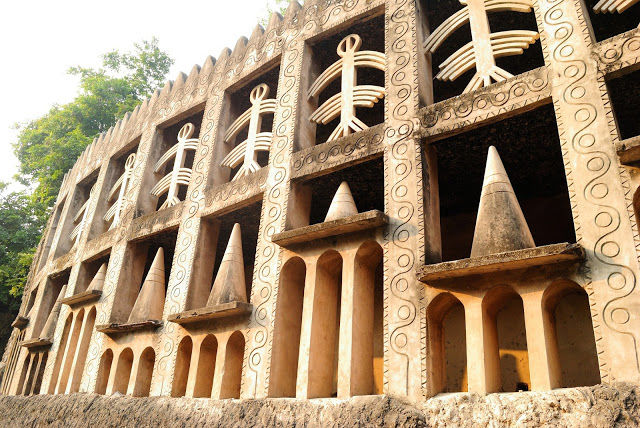
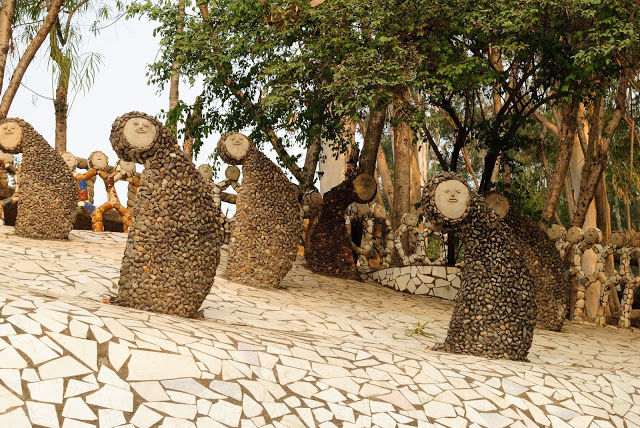
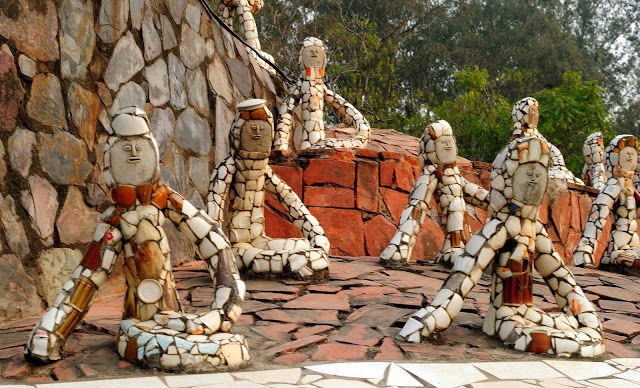
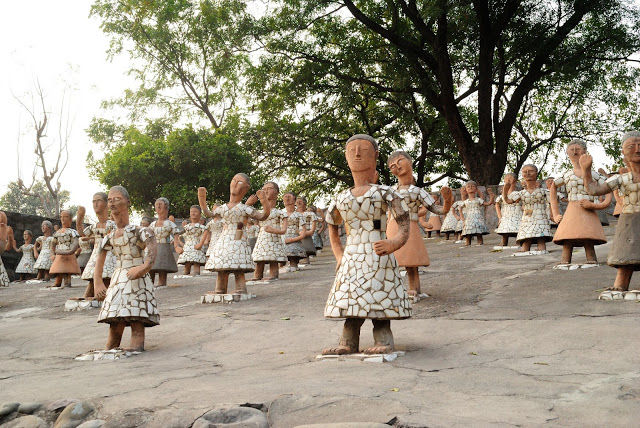
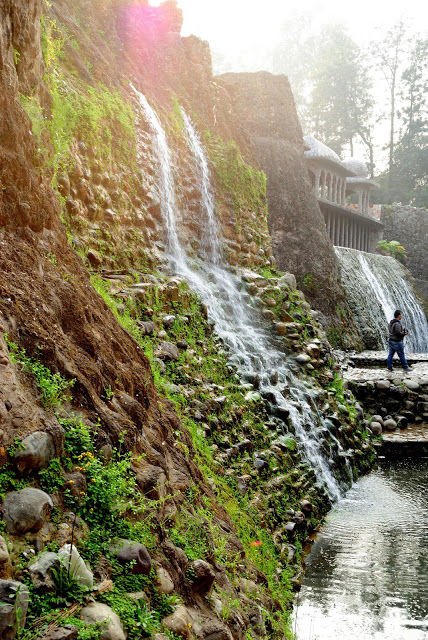
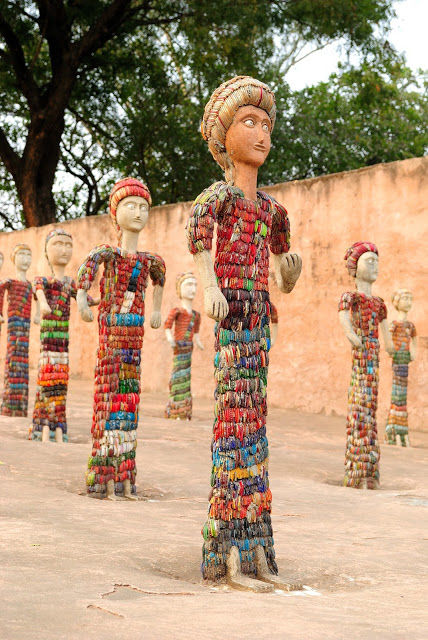
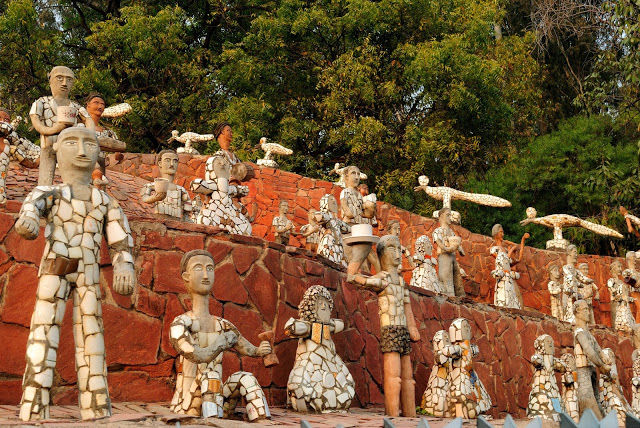
Back in my childhood when my hometown Chandigarh used to be a quiet, laid-back city offering little by way of entertainment (except for leisurely strolls by Sukhna Lake or in one of its innumerable gardens or in the Sector 17 market complex), Rock Garden used to be the object of every local's pride and affection. As a kid especially, you couldn't help but be extremely fond of this oddity, considering the recurring appearances it made in your life—during every other school picnic, whenever a relative or friend was visiting the family and on weekends when you pressurized your folks to take you out, but they were too lazy to drive up to Kasauli or Morni.
Without a doubt, there was something about this place, something eerie, exciting and mysterious about its narrow winding cave-like trails, surreal human sculptures and fantasy creatures made from broken tiles, crockery, sanitaryware, pottery, furniture, bricks, stones, pipes and everything else you can imagine. It was like getting lost in a house of freaks, a local Narnia if I may slightly exaggerate.
Like most places, however, the fascinating charm of Rock Garden gradually began to wear off. Part of this lost charm has to do with the maintenance of the place, which seems to have deteriorated a little more every time I visit, especially since its creator Nek Chand passed away a couple of years ago. And a lot of the lost charm has to do with the people who visit Rock Garden: walking around with selfie sticks sticking out in front of them like they're expecting to detect some hidden treasure, contributing to the garden's ornamentation with excessive litter and making proclamations of eternal love and lust on every wall and sculpture.
However, as any Chandigarhian would tell you, your visit to the city is incomplete without visiting the Rock Garden. So last month, when I found myself in Chandigarh along with a friend of mine due to some last-minute change of plans, I absolutely had to and did drag her off to experience the fading enigma of the place. To alleviate her anticipated disappointment, I first took her for lunch to Pal Dhaba, an iconic Chandigarh establishment that dishes out the best butter chicken in the world; not the sweet, unnervingly bright orange one you get at most places but just the right balance of creamy and spicy, with a layer of butter so thick, you can't even see the actual dish! Fortunately, it hit the spot, as did the saag chicken, the rich dal makhani and the crisp butter garlic naan and the coma-inducing feast made taking a stroll in the Rock Garden the need of the hour.
As I write this, I think about the history of the garden and it reminds me a bit of the movie Tamasha, a story about a man's continual search for the fantasy world that he created from stories he heard in his childhood. Like Ranbir Kapoor in the movie, our protagonist, creator Nek Chand, too dreamt of creating the world of his childhood—the years spent in a village that became part of Pakistan after Partition—in the heart of the meticulously planned Chandigarh which at the time was a prototype of sorts for Nehru's vision of a modern urban India, designed by French architect Le Corbusier.
So every day after work, Nek Chand, a government employee, cycled to a clandestine forest gorge near Sukhna Lake to create his rural Utopia, painstakingly molding and blending industrial and household waste to create turbaned men, ghagra-choli-clad women, waterfalls, wells, huts, animals like elephants, cows, dogs and what could only have been the bunny from Donnie Darkoand lot more.
His mini fantasy village initially covered an area of 12 sqm and, like most things illegal remained hidden from the public and administrative eyes for almost 18 years. Once detected, the garden got embroiled in several legal battles, facing innumerable demolition threats.
With public support and the creator's perseverance, however, the garden survived and how! Not only was it in the clear legally but the Chandigarh administration also made Nek Chand the sub-divisional engineer of the garden, assigning him 50 laborers to complete his work. The result is a 40-acre space that also includes an amphitheater, an aquarium and—my favourite—an area dedicated to at least 50 towering swings.
Strolling about the garden on my gazillionth visit, it suddenly strikes me how this place is an antithesis of the city that houses it. While Chandigarh is among the country's most well-planned cities with block-like sectors neatly stacked in numerical order, the Rock Garden can at best be described as random. While one instant you will find yourself marvelling at an aesthetically-planned village scene, on the next turn you'll find yourself face-to-face with an oddly shaped solitary stone.
Some structures, however, are beyond the power of human interpretation ...
Even then, you can't dismiss how in some aspects to do with typical Indian rural life; the Rock Garden gets it spot on.
All said and done; one can't deny that the Rock Garden, in spite of its oddities, lack of maintenance and unruly visitors, strikes a rather pretty picture.
So, would I recommend people visiting Chandigarh to visit the Rock Garden? Absolutely. In case you plan to visit me while I'm in the city, there is no chance of you escaping this customary tour, as all my friends who have so far been to Chandigarh with me would tell you. As for others, visit not because you've run out of things to do in the city but because, maintenance and annoying tourists aside, the Rock Garden is definitely an artistic masterpiece; in a surreal, oddball kind of way, no doubt, but a masterpiece nonetheless. Also, did I mention those swings?
This trip was originally published on Musings of a happy fool







